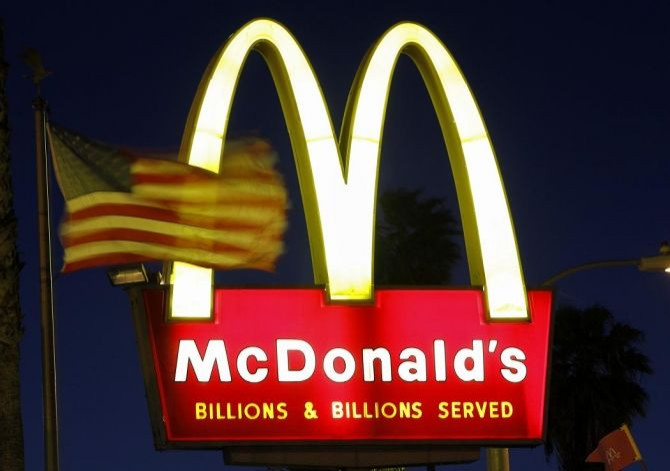Laissez-faire Economy and Obesity: Study Says Link May Exist

Obesity may be one of the indirect results of free market policies, researchers suggested on Wednesday after revealing significantly higher obesity rates in countries with more fast food restaurants for each individual.
Research on obesity generally disregards the overall market forces that push the epidemic, said Roberto De Vogli, associate professor in the U-M School of Public Health, and lead author of the study.
"It's not by chance that countries with the highest obesity rates and fast food restaurants are those in the forefront of market liberalization, such as the United States, the United Kingdom, Australia, New Zealand and Canada, versus countries like Japan and Norway, with more regulated and restrictive trade policies," said Vogli.
Researchers examined 26 affluent countries and found that the United States had 7.53 fast food restaurants per 100,000 people, while Canada had 7.43 restaurants per 100,000 people. Obesity rates for American men and women were at 31.3 percent and 33.2 percent respectively. In Canada the rates for men and women were 23.2 percent and 22.9 percent respectively.
Obesity rates in Japan and Norway were significantly lower, with a rate of 2.9 percent in Japan and 3.3 percent in Norway.
Japan had 0.13 fast food restaurants per 100,000 people and Norway had 0.19 fast food restaurants per 100,000 people.
“If you look at trends over time for obesity, it's shocking," De Vogli said.
This trend is consistent even when researchers controlled for variables like income, income inequality, urban areas, motor vehicles and internet use per capita.
De Vogli expressed that the public debate is too focused on individual genetics and other individual factors, and overlooks the global forces in society that shaping behaviors worldwide.
"Since the 1980s, since the advent of trade liberalization policies that have indirectly…promoted transnational food companies…we see rates that have tripled or quadrupled. There is no biological, genetic, psychological or community level factor that can explain this. Only a global type of change can explain this," De Vogli said.
Fast food restaurants sell preheated or precooked ingredients in a packaged form. A typical fast food meal consists of a hamburger, fries and a soft drink, the paper said. The food generally has a great amount of fat and calories.
The paper noted that several studies found associations between fast food consumption and increased body mass index, insulin resistance and type II diabetes.
Obesity kills roughly 400,000 people in the United States alone, and is becoming increasingly prevalent both domestically and internationally, according to the study.



























